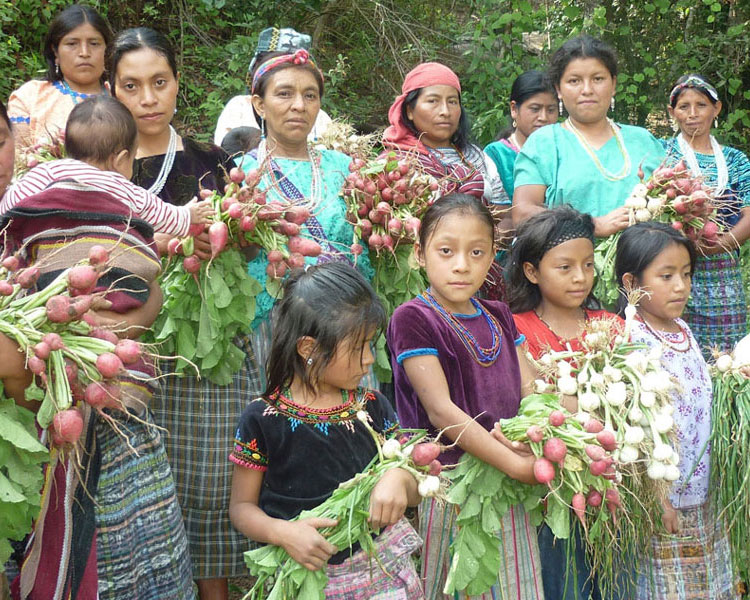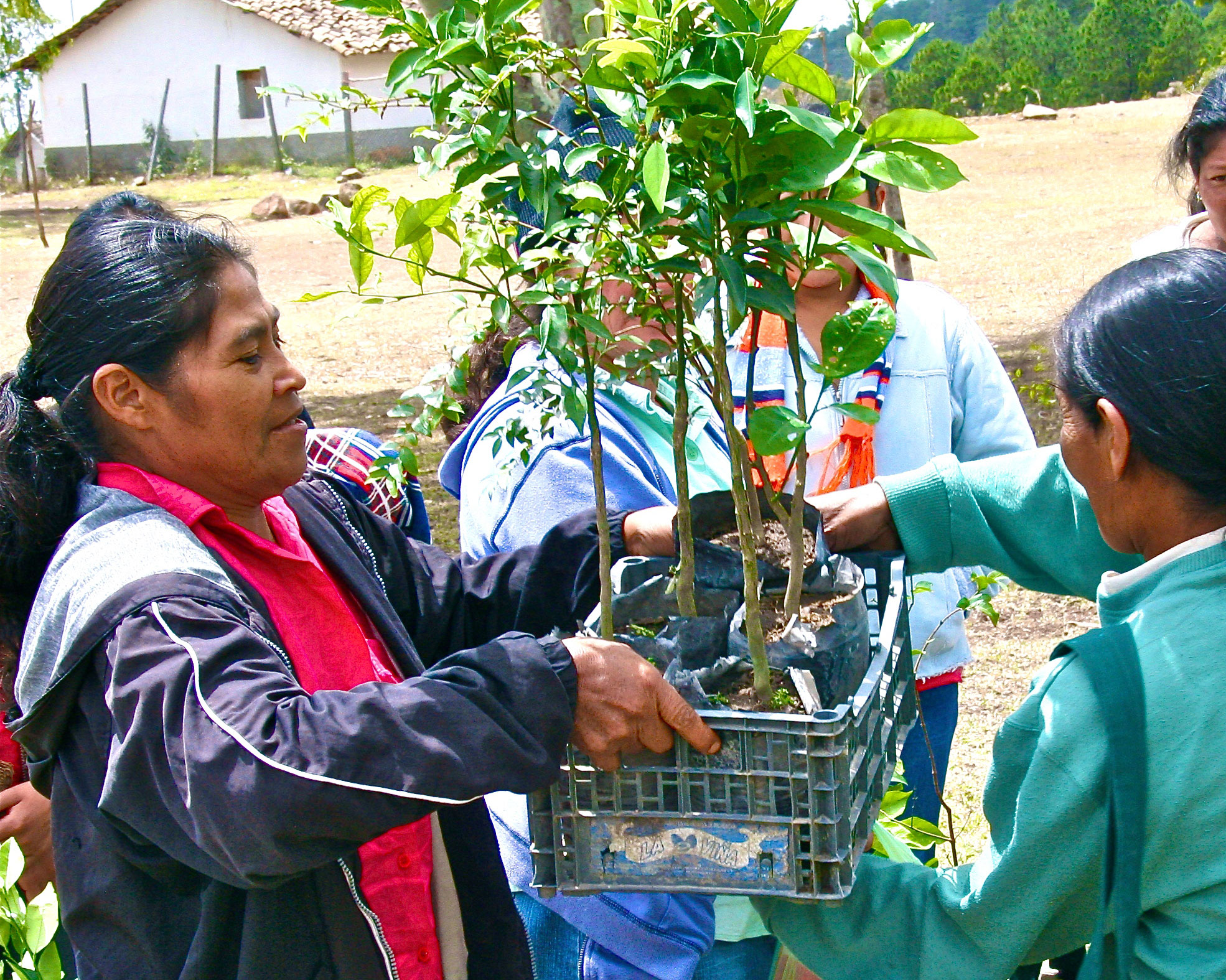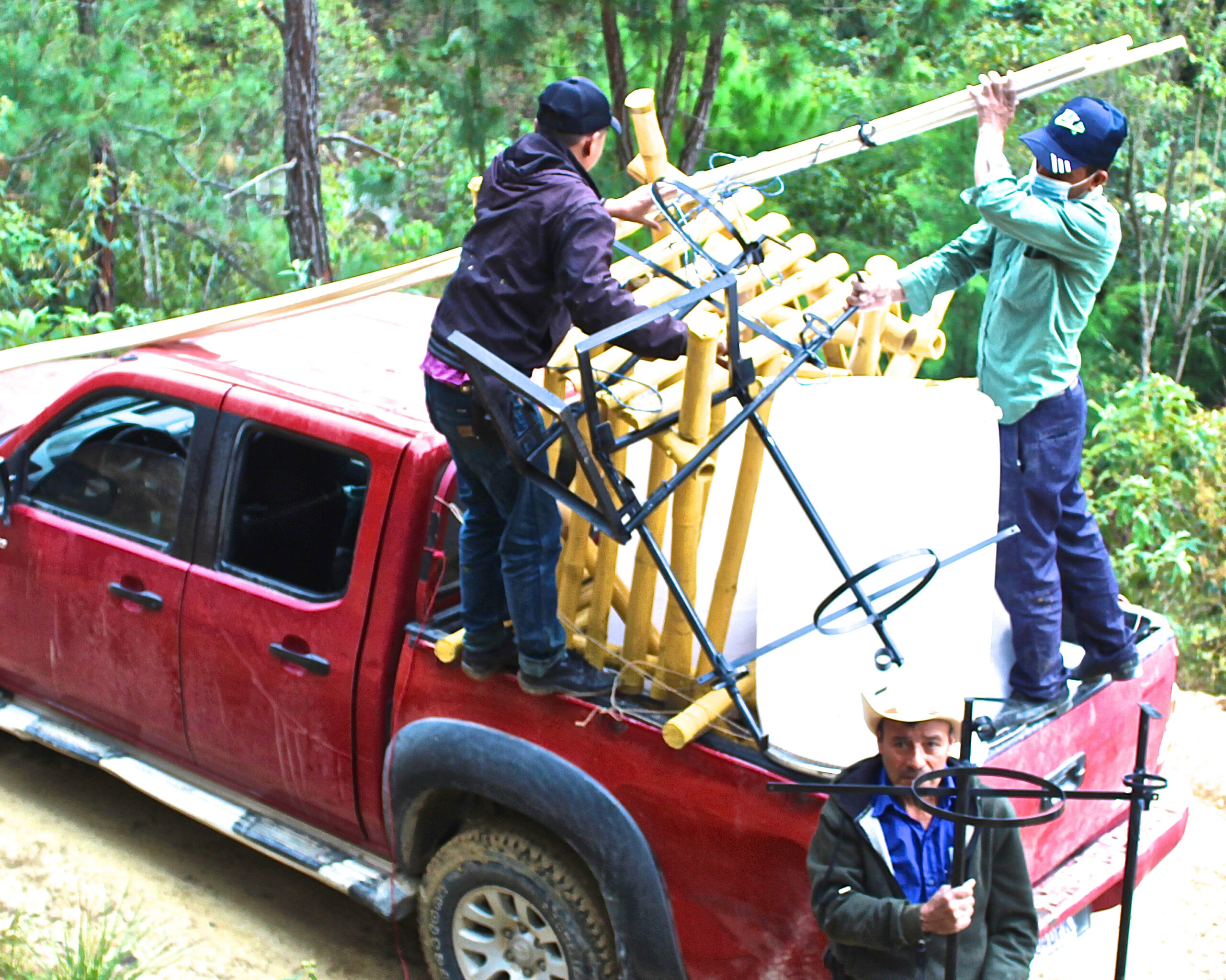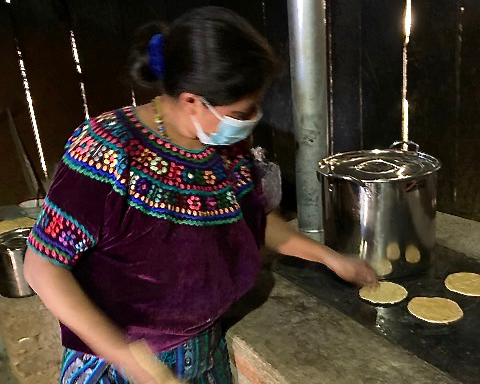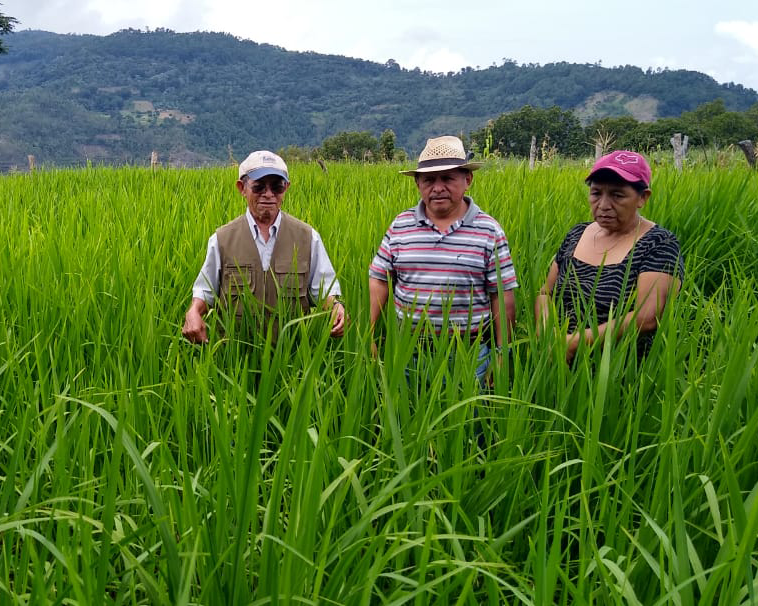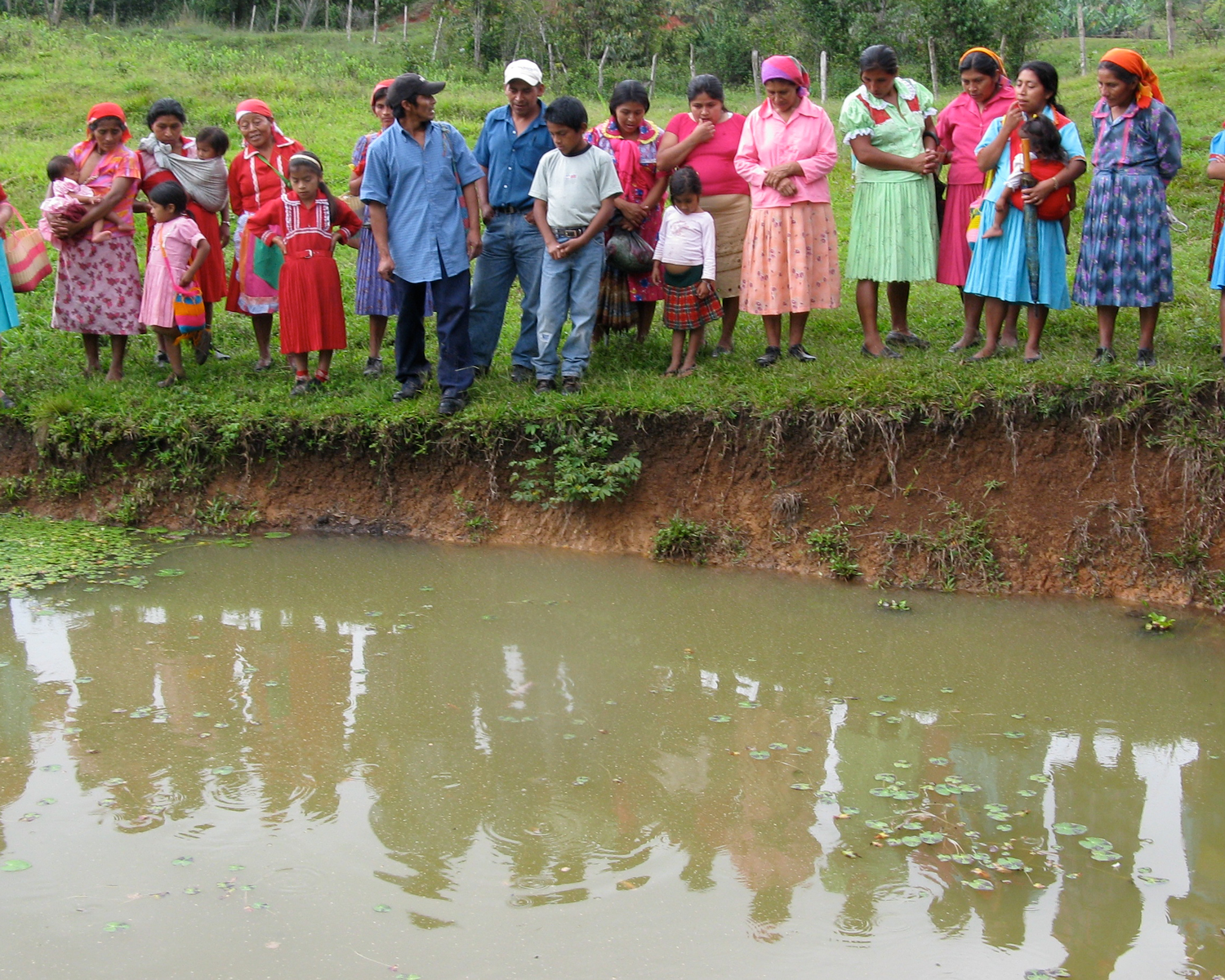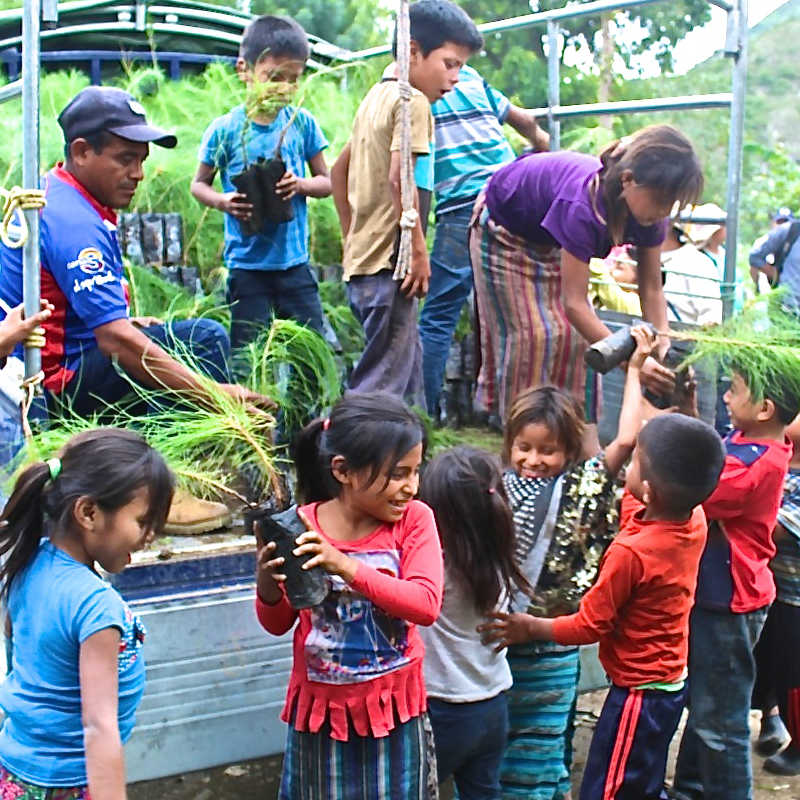Vegetable Gardens
Large communal gardens are useful to teach local women in new groups to grow a variety of vegetables. Then they can successfully plant their own home gardens. Women learn to make compost for organic fertilizers and how to prepare nontoxic, natural insecticides. Throughout the harvest season the EPIC promotors lead cooking classes using the vegetables the women have grown.
Fruit Trees
EPIC’s programs are encouraging families in Central America to plant papayas, mangos, peaches, apples, plums, oranges, tangerines, and other varieties of fruit. Planting fruit trees gives families more nutritious food in a part of the world where food security is a serious problem and many children do not have enough nutritious food. Most families like to plant several kinds of fruit which enables them to have fruit year around since winters here are not cold.
Hand-washing Stations Update
In very rural Guatemala some schools have latrines, but no place for children to wash their hands. Being able to wash hands prevents diseases from Covid to the flu to parasites. This year EPIC’s program in Baja Verapaz, Guatemala, worked with teachers and parents in 20 rural schools to build hand-washing stations. They have been very well accepted by the students and more schools are asking for them.
2.17.23 – Fuel-Saving Stoves
This fuel saving stove has a chimney that takes the smoke out of the kitchen, significantly diminishing lung damage for women who spend hours a day making meals and tortillas for their families. Visiting the Baja Verapaz Program in Guatemala, Paul Mckay and EPIC's new board member Scott Brink saw home and health improvement put together with saving trees.
Tempisque Rice Updates
In 2020, 2021 and 2022, EPIC’s Rice Project - including Baja Verapaz: Sustainable Agriculture, APRODEHNI, “Laudato Si” Organic Agricultural Program, and La Semilla del Progreso - experimented with this indigenous rice, planting research plots in 4 countries. The rice had been discovered in a remote village in Honduras, called Tempisque, where it was being grown. It was planted on hillsides and not in rice paddies. Local farmers said it was strong and resilient. Now the results of the research plots have shown:
Fish Ponds Update
EPIC’s agricultural programs are teaching people to raise fish in family fish ponds. The family or a group of neighbors dig the pond, and the EPIC program staff provide instruction on caring for the pond and the young fish.


